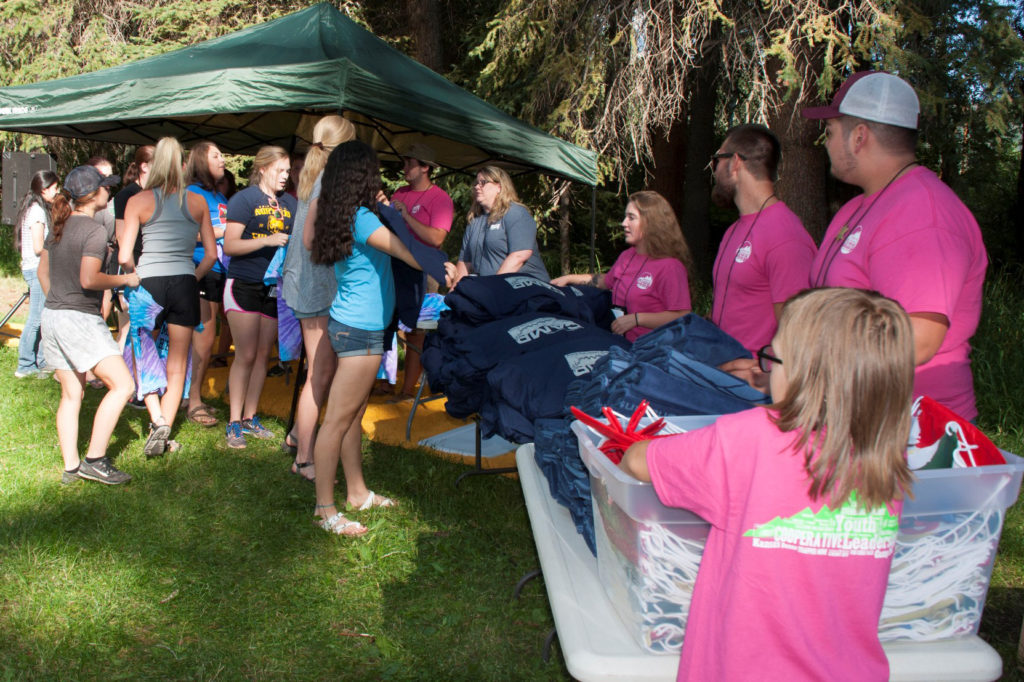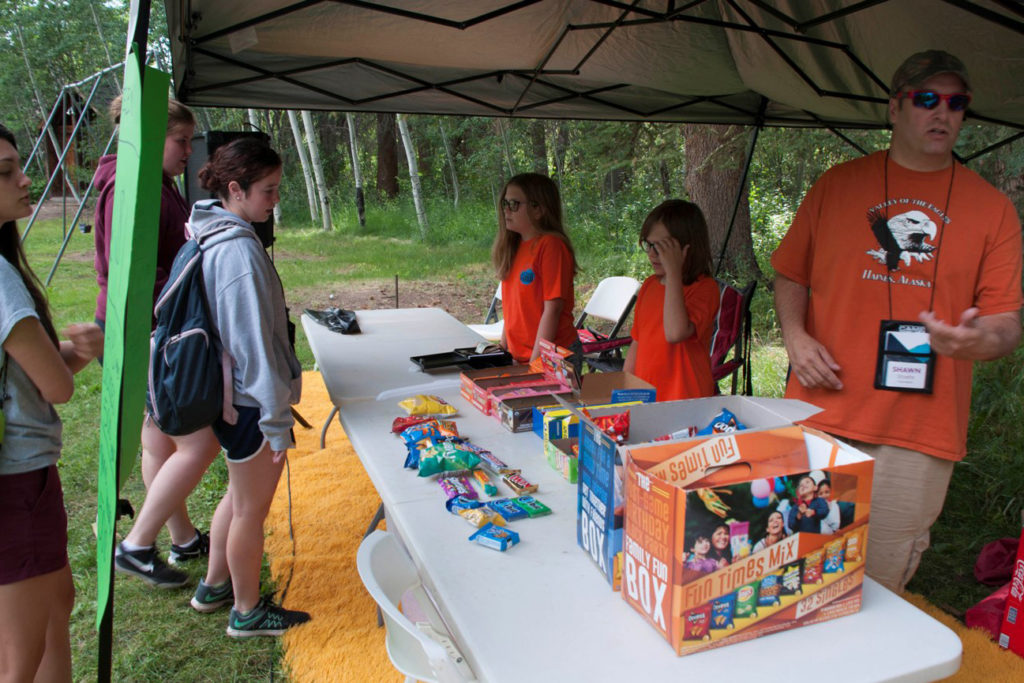
Camp isn’t always about swimming or arts and crafts. At the Cooperative Youth Leadership Camp, there’s a focus on learning about co-ops, which this summer resulted in a gift that will help bring electricity to those without.
Nearly 100 high school students from Colorado, Kansas, Oklahoma and Wyoming attended the July camp near Steamboat Springs, Colorado. Most were selected by their local co-ops through an essay contest, personal interviews, a test on the electric cooperative industry or a combination of those activities.
“These students created their own mock cooperative, selling snacks to each other through the camp ‘canteen,’ ” said Shana Read, director of communications at Kansas Electric Cooperatives, who doubles as a camp counselor.
Campers learn the basics of the cooperative business model, including this fundamental: When a co-op takes in more than it spends, the extra becomes capital credits.
“At the end of camp, the students have the opportunity to select what to do with their capital credits,” said Read. Campers in past years have donated the money to various groups, including the Muscular Dystrophy Association and a scholarship fund for children whose lineman father died on the job.
So what to do with this year’s $338.26?
As it happens, another counselor, Stacy Howeth, director of member services at the Oklahoma Association of Electric Cooperatives, shared with the students the work that NRECA International is doing to electrify some of the world’s poorest places.

“I was telling the campers about Oklahoma’s international project experiences in 2016 and 2017,” said Howeth. “I wanted to relate what co-ops are currently doing internationally to what co-ops did for rural America in the 1930s and 1940s.”
The students had questions, including how many countries are being helped and what could they do. Thanks to Facebook Messenger, they were able to get expert answers from Zuraidah Hoffman, NRECA International’s communications manager, who offered sage advice.
“I told them to study to be distribution engineers or agricultural economists,” said Hoffman.
The campers were quite impressed and voted to donate this summer’s capital credits to NRECA International.
“I’d like to thank this group of students for their donation,” said Dan Waddle, senior vice president for NRECA International. “I also encourage them all to keep learning about international development issues, and develop a greater understanding on how they can help underserved communities, here and around the world.”
Michael W. Kahn is a staff writer at NRECA.